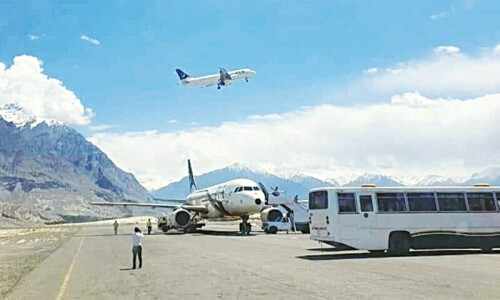KUALA LUMPUR: Iran, Malaysia, Turkey and Qatar are considering trading among themselves in gold and through a barter system as a hedge against any future economic sanctions on them, Malaysian Prime Minister Mahathir Mohamad said on Saturday.
At the end of a summit of Muslim leaders in Malaysia, Mahathir praised Iran and Qatar for withstanding economic embargoes and said it was important for the Muslim world to be self-reliant to face future threats.
“With the world witnessing nations making unilateral decisions to impose such punitive measures, Malaysia and other nations must always bear in mind that it can be imposed on any of us,” Mahathir said.
US-allied Arab states Saudi Arabia, the United Arab Emirates, Bahrain and Egypt cut diplomatic and trade links with Qatar about two-and-a-half years ago over allegations it backs terrorism, a charge Doha denies. Iran, meanwhile, has been hit badly after the United States re-imposed sanctions on it last year.
Malaysian leader criticises India’s citizenship act
“I have suggested that we revisit the idea of trading using the gold dinar and barter trade among us,” Mahathir said, referring to the Islamic gold coin. “We are seriously looking into this and we hope that we will be able to find a mechanism to put it into effect.”
The leaders agreed they needed do more business among themselves and trade in each other’s currencies.
The summit, which was snubbed by Saudi Arabia, was criticised for undermining the Saudi-based Organisation of Islamic Cooperation (OIC), which represents 57 Muslim-majority nations. Malaysia said all the OIC members had been invited to the Kuala Lumpur summit but only about 20 showed up.
By the fourth and final day of the summit, no joint statement had been released. The summit had been expected to discuss major issues affecting Muslims, including Palestine, occupied Kashmir and the plight of Rohingya Muslims in Myanmar and China’s camps for Uighur Muslims in its western Xinjiang region.
Without naming any country, Mahathir said there was concern that Muslims in non-Muslim countries were forced to undergo assimilation.
“We support integration but assimilation to the extent of shedding our religion is unacceptable,” he said.
At a news conference, he said the summit participants had been told that Uighurs were being detained in China. “We have to hear the state, we have to hear the people who complain, then only it will be fair,” he said.
He called India’s new citizenship act “unfortunate”. The act facilitates faster naturalisation of non-Muslims from Afghanistan, Bangladesh and Pakistan who had settled in India prior to 2015, but leaves out Muslims.
Published in Dawn, December 22nd, 2019















































Dear visitor, the comments section is undergoing an overhaul and will return soon.